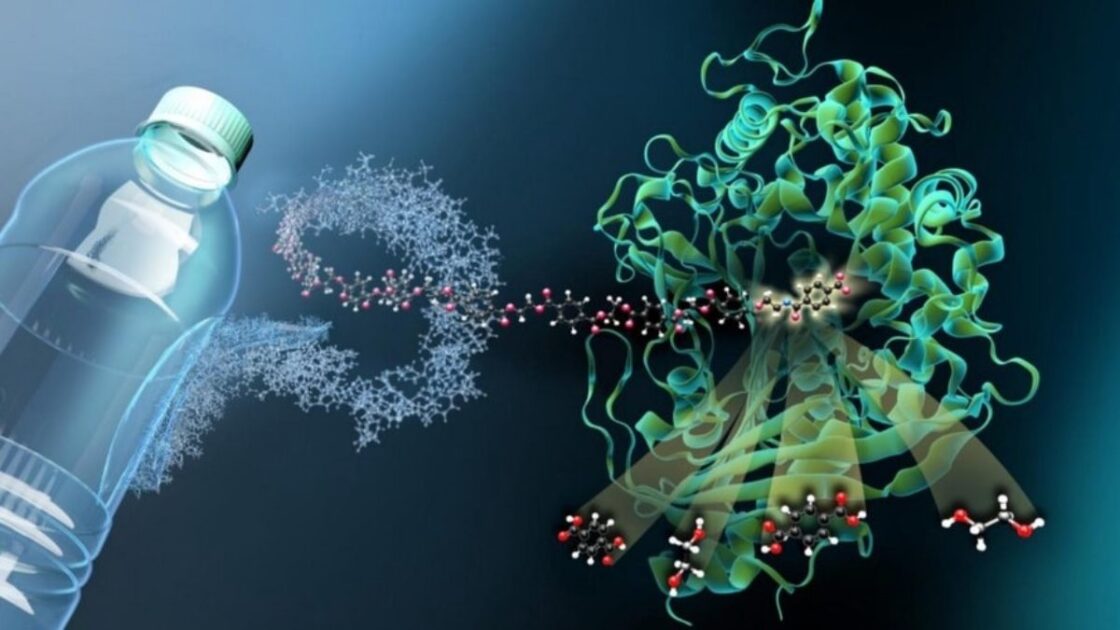A newly discovered enzyme motif reveals how ocean microbes are evolving to digest plastic, potentially aiding future cleanup efforts.
Hidden in the depths of the ocean, scientists have discovered marine bacteria equipped with enzymes that can consume plastic, their evolution shaped by humanity’s discarded waste.
According to a global study by researchers at KAUST, these microscopic recyclers are not only abundant but also genetically adapted to break down polyethylene terephthalate , the tough plastic used in products such as beverage bottles and fabrics.
The key to their ability lies in a distinctive structural feature of the PET-degrading enzyme, called PETase. This identifying mark, known as the M5 motif, serves as a molecular signature of the enzyme’s plastic-eating power.
“The M5 motif acts like a fingerprint that tells us when a PETase is likely to be functional, able to break down PET plastic,” explains Carlos Duarte, a marine ecologist and co-leader of the study.
“Its discovery helps us understand how these enzymes evolved from other hydrocarbon-degrading enzymes,” he says. “In the ocean, where carbon is scarce, microbes seem to have fine-tuned these enzymes to make use of this new, human-made carbon source: plastic.”
From Indestructible Plastic to Microbial Feast
For years, scientists believed that PET could not be naturally broken down. That view began to change in 2016, when researchers identified a bacterium living in a Japanese recycling facility that was thriving on plastic waste. This organism had developed an enzyme, known as a PETase, that could dismantle PET into its basic building blocks.
However, scientists were still unsure whether ocean-dwelling microbes had evolved similar enzymes.
Through a combination of AI-driven structural modeling, extensive genetic analysis, and laboratory testing, Duarte and his team discovered that a specific feature called the M5 motif distinguishes genuine PET-degrading microbes from those that only resemble them. Marine bacteria possessing the complete motif were able to efficiently break down PET in the lab. Further gene expression studies showed that M5-PETase genes are highly active throughout the oceans, particularly in regions heavily polluted with plastic.







